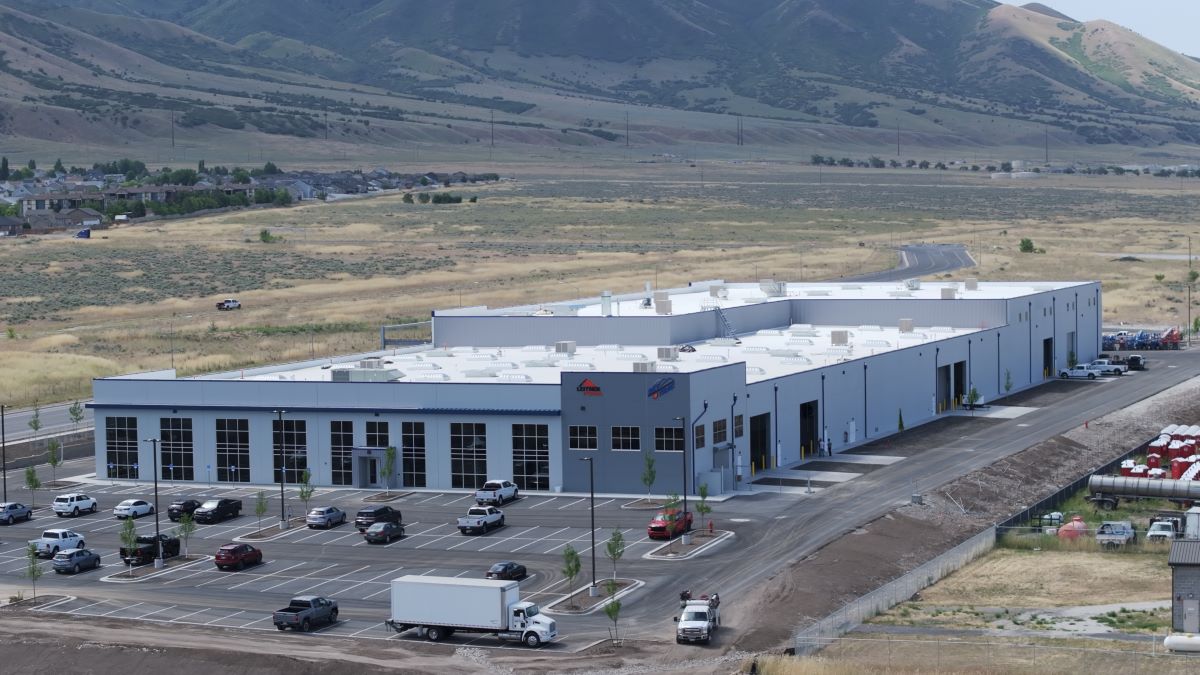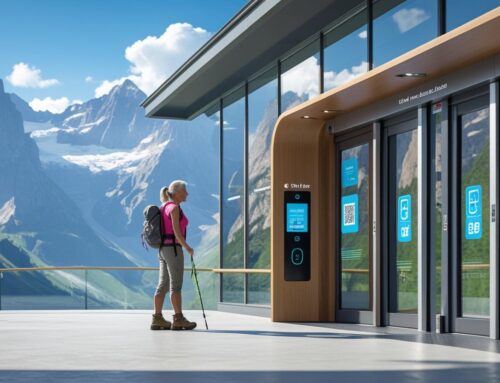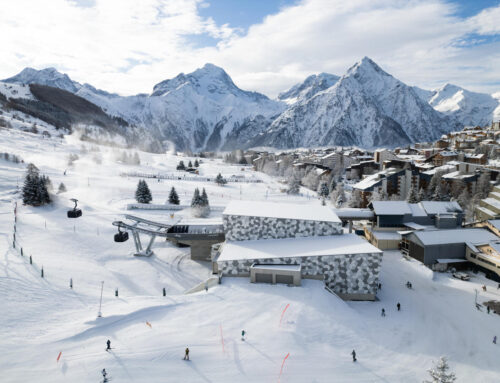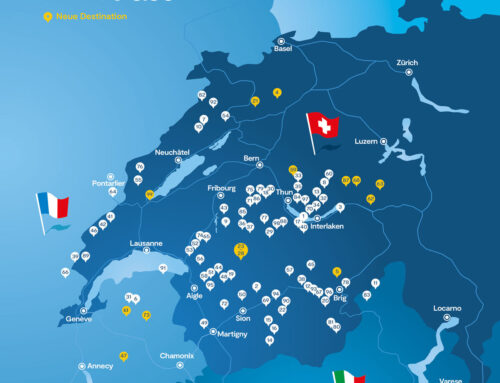
Management & Tourism
Trump’s tariffs: How severely do they impact the European cable car industry?
When U.S. President Donald Trump announced new additional tariffs on imports in early April, the reaction from many economies was no surprise: concern and unease. For many countries, the new surcharge is set at 10 percent, for Switzerland at 31 percent, and for the EU at 20 percent.
According to economic advisors at Deloitte, tariffs on most industrial goods had previously ranged from one to five percent – so the increase could be quite significant. The new tariffs were originally supposed to take effect in April. However, on April 9, Trump imposed a 90-day delay and temporarily capped the tariffs at a flat rate of ten percent.
Almost all goods are affected – but there are exceptions. Products such as copper, pharmaceuticals, wood, energy, and rare minerals not available in the U.S. are exempt from the additional tariffs.
Vehicles and steel and aluminum products are also excluded from these new tariffs, since additional duties on steel and aluminum had already taken effect in March, and 25 percent tariffs on vehicles were introduced on April 3. With this tariff policy, Trump aims to strengthen U.S. industry and extract more concessions from international partners.
Importance of the US market for Austria
After Germany and ahead of Italy, the United States is Austria’s second most important export partner. In 2024, Austria exported goods worth €16.2 billion to the U.S., according to the Federal Ministry for Economic Affairs, Energy and Tourism — an increase of 10.1 percent compared to the previous year. This means that around 8.5 percent of all Austrian exports went to the U.S. market. According to Statistics Austria, 46.9 percent of these exports were machinery and vehicles, followed by chemical products.
Doppelmayr: Numerous Projects in the USA
The American market is of great importance to the Doppelmayr Group. In recent years, ski resorts across the United States have seen significant investment in infrastructure — including new ropeway installations. Several new systems are either planned or already under construction for the upcoming winter season.
Numerous projects are currently underway in various U.S. states, ski resorts, and key tourist destinations. Examples include the Explorer Gondola in Big Sky, the Deer Valley expansion, and the ARGO Clear Creek Cable Liner® at Newark Airport.
In the 2023/24 fiscal year, North America (the U.S. and Canada) accounted for 29 percent of Doppelmayr Group’s total revenue. While some systems are manufactured locally, the share of exports from Europe — especially driven by high demand for the D-Line — has increased significantly in recent years. In fact, in the 2022/23 fiscal year, the North American market already made up an impressive 28 percent of total revenue.
Doppelmayr’s Strategy
Doppelmayr operates a production facility in Salt Lake City, specifically designed for the U.S. market. This facility is currently being expanded, with new office, production, and storage spaces planned over the next two years. However, due to high demand, certain components will continue to be sourced from Austria or Switzerland. Additional tariffs could therefore have a noticeable impact on these supply chains.

Prinoth: Tariffs Also in Focus
The manufacturer of snow grooming vehicles and tracked utility vehicles considers the USA one of its largest sales markets. According to Florian Nicolussi-Rossi, Head of Product Management at Prinoth, around 25 to 35 percent of total production is exported to the United States.
“Fortunately, we currently still have inventory on-site that we can use, and to some extent, we hope that tariffs are expected to be reduced again,” says Nicolussi-Rossi.
“One division produces in the USA, but unfortunately not snow groomers. Snow groomers are manufactured in Canada and Italy. That means we are affected by tariffs at both locations.”
PistenBully: Market Restrictions Complicate Business
Christof Peer, Board Member for Sales & Services at PistenBully manufacturer KÄSSBOHRER, emphasizes that the American market is very important for the company from several perspectives:
On one hand, the company holds a significant market share in the USA. On the other, it maintains long-standing and especially trusting relationships with its customers in the United States.
“Market restrictions — of any kind — make it difficult for all of us to reach our full potential and hinder economic success. The introduction of tariffs, no matter how high, affects us just like all other market players and industries,” explains Christof Peer.
Leitner & Co:
The South Tyrolean corporate group HTI has significantly expanded its activities in North America with a production center in Utah. Here, they manufacture ropeways, wind turbines, and urban mobility solutions.

Possible Economic Consequences
According to a recent report by the World Trade Organization (WTO – as of April 2025), the volume of global goods trade could decline by 0.2 percent in 2025 — and in the worst case, by as much as 1.5 percent, explains Veronika Möller, Managing Director of the EU consultancy MOVER CONSULTING. The decline is expected to be particularly strong in North America, where a drop in exports of 12.6 percent is forecast.
According to Möller, existing tariffs on certain product groups — such as in the automotive sector, steel, aluminum, copper, or semiconductors — have far-reaching effects on the overall economy due to their importance in numerous supply chains and for suppliers.
Higher tariffs can lead to a decrease in orders, negatively impacting the entire value chain, including suppliers and service providers in the Alpine regions.

Veronika Möller
Managing Director of the policy consultancy MOVER CONSULTING
Shift in the Global Balance of Power
Möller points out that current developments could affect relations in a complex triangular dynamic between the EU, the USA, and China. While the USA adopts protectionist measures, China is trying to strengthen its position as Europe’s trade partner and to replace sales in the USA.
“This could lead to an increased presence of Chinese products in the European market, which in turn raises competition for European companies. At the same time, there is a risk that European companies may shift from their previous strategic dependence on the USA to a new strategic dependence on China,” says the expert.
“The introduction of additional tariffs by the USA presents a significant challenge for the European ropeway and tourism industry. Companies must act proactively to secure their competitiveness and adapt to the volatile geopolitical landscape,” Möller adds.
Recommendations – Despite High Volatility and Economic Uncertainty
-
Diversify Markets: Reduce dependencies by exploring new markets.
-
Strengthen Regional Value Chains: Support local suppliers and service providers to increase resilience against international trade conflicts.
-
Invest in Innovation: Develop new products and services tailored to the needs of different markets.
-
Engage in EU Politics: Actively participate in political processes at the EU level to represent the industry’s interests and respond early to regulatory changes.
However, many companies are currently adopting a wait-and-see approach, monitoring the situation closely. The 90-day suspension of reciprocal tariffs expires in early July, and decisions from the US Supreme Court regarding the legality of President Trump’s executive orders are expected as early as May. This may provide clearer insight into how the situation will develop.







